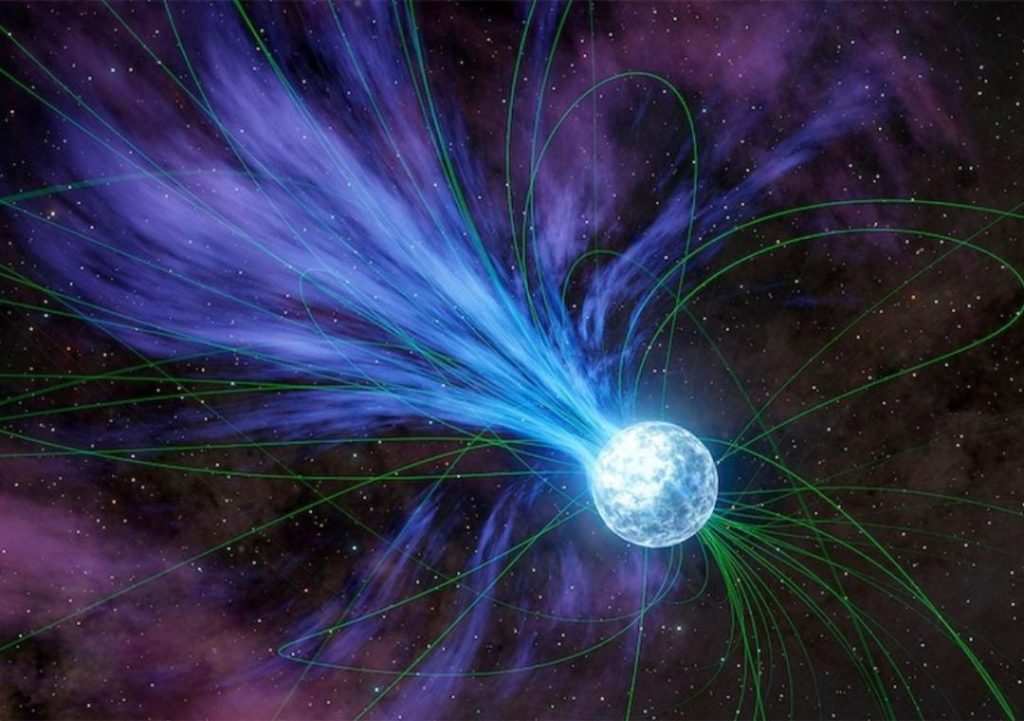
Gold & Platinum created through neutron stars’ explosions: Study
For centuries, humans have been fascinated by the origin of precious metals like gold and platinum. Where did these valuable elements come from? Scientists have long debated the topic, with many theories and hypotheses put forth to explain their creation. Recently, a breakthrough study has shed new light on the origins of these precious metals, revealing that they were created through the explosions of magnetars, or highly magnetized neutron stars.
Led by Columbia University student Anirudh Patel, the study found that magnetars exploded and released flares that contained the elements gold and platinum. These explosions occur approximately once per decade in the Milky Way galaxy and annually across the observable universe.
The study’s findings were published in the journal Nature, and the results have sent shockwaves throughout the scientific community. For the first time, scientists have been able to pinpoint the exact source of these precious metals, providing a new understanding of the universe’s chemical composition.
So, how did the researchers arrive at this groundbreaking conclusion? It all began with the observation of a rare astronomical event – a magnetar explosion. Magnetars are incredibly powerful, spinning neutron stars with magnetic fields hundreds of times stronger than those of regular neutron stars. When they explode, they release massive amounts of energy in the form of flares and radiation.
The researchers analyzed data from NASA’s Fermi Gamma-Ray Space Telescope, which had detected a magnetar explosion in the distant galaxy NGC 253. By examining the emission patterns from the flare, they were able to determine that it contained significant amounts of gold and platinum.
But how did these elements come to be present in the magnetar’s explosion? To understand this, it’s necessary to delve into the process of nucleosynthesis, the creation of heavy elements from lighter ones through nuclear reactions.
During the explosion, the intense heat and energy released by the magnetar triggered a series of nuclear reactions, resulting in the formation of heavier elements like gold and platinum. These reactions occur when atomic nuclei combine to form new, heavier elements, a process that is rare in the universe but essential for the creation of many precious metals.
The researchers used computer simulations to model the explosion and subsequent nuclear reactions, confirming their findings and providing a detailed understanding of the process. By analyzing the data from the Fermi telescope, they were able to pinpoint the exact conditions under which the gold and platinum were created.
The study’s lead author, Anirudh Patel, commented on the significance of their findings, stating, “This research provides strong evidence that magnetars are responsible for the creation of gold and platinum in the universe. It’s a major breakthrough in our understanding of the origins of these precious metals.”
The implications of this study are far-reaching, providing new insights into the universe’s chemical composition and the processes that shape it. For scientists, this discovery opens up new avenues of research, allowing them to better understand the origins of the elements that make up our universe.
For the general public, this study offers a fascinating glimpse into the wonders of the cosmos. Who knew that the precious metals we so highly value were created through the explosive power of magnetars? The universe is full of mysteries, and this discovery is a testament to the incredible complexity and beauty of the cosmos.
In conclusion, the study’s findings have provided a groundbreaking answer to the question of where gold and platinum come from. Through the explosions of magnetars, the universe has created these precious metals, and scientists have been able to pinpoint the exact source of their creation. This discovery is a major breakthrough in our understanding of the universe, and it will undoubtedly continue to inspire new research and exploration in the years to come.






